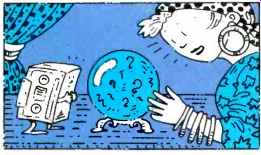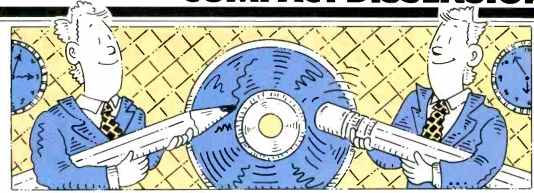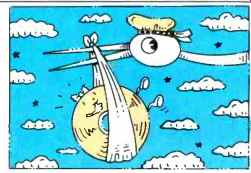COMPACT DISSENSION

R-DAT's Prospects
It's by no means certain that R-DAT will be the next universal home recording medium, the digital successor to the Compact Cassette.
Legal threats from the record industry have delayed its start, giving potential competitors a little breathing space.
Not that there's any other digital medium around this year, but some buyers may hold off to see what happens to Philips' DCC digital system or recordable CD-either or both of which might just possibly show up by next year.
One thing that will help R-DAT is that it's a digital recording medium that even semi-pro garage studios can afford. And with SMPTE time code now available for DAT, it becomes possible to synchronize DAT with video and film, opening up new professional markets for the medium.
Pro success should add to DAT's cachet as a home recording medium.
So should DAT's head start: The first home DAT recorders that appeared on the U.S. and European markets were generations newer than the first ones to appear in Japan in the 1980s, and they showed considerable refinement. The first recorders for other media may be rather less refined. However, they'll be able to catch up quickly, using DAT as a model.
There's Music and Then There's ... Record merchants the world over label each rack of merchandise according to its contents. But the British weekly New Scientist was puzzled by the nomenclature in one English store. Although they had no problem with the sections labeled "Rock and Pop," "Jazz," and "Classical," they didn't know what to make of a fourth section, labeled simply "Music."
Write Now, Erase Later

No matter how the contest between DAT and the forthcoming Philips DCC digital tape system comes out, there's almost certain to be a new digital audio recording medium on the consumer market in a year or two.
It's recordable digital disc, already under development by Radio Shack and being shown in prototype by companies like Denon, JVC, Kenwood, Philips, Pioneer, Sony, TDK, That's, and Thomson. The question, until recently, was whether the discs would be playable on the 50 million CD transports in use or whether they'd require new playback equipment-and if it would be possible to erase and rerecord the discs.
The answer seems to be record--once now, erasable later. Thomson (which owns the GE and RCA home electronics brands in the U.S.) has pushed back its timetable for introducing rerecordable magneto-optical discs (Audio, March 1990). MODs, incidentally, can accommodate still and full-motion video as well as audio, but they are not compatible with existing CD players. Most of the Japanese companies espouse write-once systems, which cannot be rerecorded but do produce compatible CDs.
JVC has announced a late-1991 introduction for its recorder, which it says will be for computer use. Other, Japanese manufacturers are hinting at 1992 as a more likely target. Philips and Sony have shown both system types. The big stumbling block, at least for audio and audio/video recorders, remains the copyright and royalty question. That could perhaps be solved by building some version of Philips' Serial Copy Management System into the recorders.
Radio Shack is still working on its Thor system, which is promised to be both re-recordable and CD-compatible. "You may see a product come out of this development effort before Thor, which would not be called Thor. The research we've done on Thor is likely to spin off a whole family of products, possibly including a write-once system. But Thor has moved out of the research phase and into the product development phase," says Ed Juge, Radio Shack's Director of Market Planning.
-Robert Angus
Mystery Minidisc

Rumors that Sony plans a recordable disc system using 31-inch magneto-optical discs have now been publicly confirmed-not by Sony but by Bertelsmann Music Group (BMG). Speaking at an International Tape Association seminar, BMG Senior Vice President Joel Schoenfeld said his company is considering both Sony's Minidisc and Philips' Digital Compact Cassette (DCC) as successors to the prerecorded analog cassette. The Minidisc is a magneto-optical system that can be erased and rerecorded. It's also said to use a new form of technology that packs six times as much data onto the disc as would fit a CD of the same size; that would give it a capacity of 75 to 80 minutes, more than a conventional CD holds. However, Minidiscs will probably not be playable on CD equipment.
(adapted from Audio magazine, Jun. 1991)
= = = =